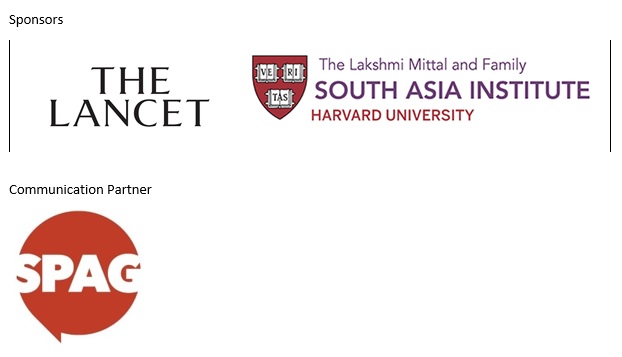• Launch of initiative to develop a citizens’ roadmap to achieving universal healthcoverage
• Commissionwillbethefirstparticipatory,country-widereportofitsscaletobedeveloped
Mumbai, December 11, 2020: India’s efforts to achieve Universal Health Coverage (UHC) will now be catalysed by the voices of its citizens and prominent stakeholders from across diverse sectors of India’s health system with the launch of The Lancet Citizens’ Commission – ‘Reimagining India’s Health System’. The work of the Commission will begin today, with an aim to publish a final report of its findings and recommendations in the next two years.
Formulated in association with the world leading international medical journal, The Lancet and The Lakshmi Mittal And Family South Asia Institute, Harvard University, the Commission’s primary mission will be to lay out the path to guarantee universal access to quality and affordable health care services to every Indian. The Commission will be led by four distinguished health and business leaders (co-chairs, mentioned alongside), who have brought together thirteen experts from academia, the scientific community, civil society, and private healthcare to serve with them on the Commission (full list at the end).*
Commenting on the Commission’s vision, Kiran Mazumdar-Shaw, Executive Chairperson,
Biocon said, “This is a first of its kind consultative and participatory initiative that aims to chart socio-economic parity through universal health equity. It seeks to engage citizens from across the country and put them at the heart of the efforts to transform India’s health system and make
universal health care a reality in this country. Our intent is to include Indians from all socio-economic strata in this crucial discussion so that their experiences and views can be integrated in the recommendations, thus ensuring a credible and comprehensive report at the end of the process.”
The Commission was initiated in the shadow of the Covid-19 pandemic, which has laid bare the need for a resilient health system that offers comprehensive, accountable, accessible, inclusive, and affordable quality health care to all citizens. What sets this endeavour apart is its commitment to go beyond traditional boundaries of expertise to actively engage those whose voices have rarely been heard in previous reports: those who deliver healthcare and those who receive it.
Over the coming year, the Commission will gather insights from across India through grassroots surveys, public consultations, and online discussions on the issue of universal health coverage. It will also build partnerships and work closely with academic institutions, civil society and other stakeholders to catalyse dialogue and knowledge sharing across fields. In particular, it will continue to engage with the government, which it sees as a critically important steward to realizing universal health coverage. Insights will be shared on the Commission’s website (www.citizenshealth.in), as well as on its social media handles. The final report will be submitted for peer review and publication in The Lancet.
Highlighting what sets this Commission apart from previous efforts, Gagandeep Kang, Professor, Christian Medical College, Vellore, said, “To realise a resilient health system where access to healthcare is not a luxury and where the marginalised remain elusive, all stakeholders including the citizenry need to work along with the government and deliberate on solutions for effective implementation of the universal health coverage.”
Previous Lancet Commissions have been enormously influential in shaping global policy and paving the way for medical reforms and global health discussions around the world. Vikram Patel, Professor, Harvard Medical School and Harvard TH Chan School of Public Health and co-founder of the Indian NGO Sangath, further emphasized the potential of this Commission’s impact in current times, “The pandemic offers a historic opportunity to realize the country’s aspirations to achieve universal health coverage and we hope to publish our findings in time of the landmark of India’s attainment of 75 years of freedom on August 15th, 2022.”
The sentiment was echoed by co-chair Tarun Khanna, Professor, Harvard Business School and Director, The Lakshmi Mittal And Family South Asia Institute, who also commented on the critical role of healthcare for India’s wider ambitions: “India’s progression towards a greater economic prowess needs to be empowered by its healthy citizenry.”
Pamela Das, Senior Executive Editor, The Lancet adds: “The first Lancet India Series published in 2011 laid out a bold roadmap for UHC. This new Commission is an opportunity to renew and reconfigure that vision, and put the citizens of India at the heart of the process with a view to transform policy in India. We look forward to working on this important endeavour with our Indian colleagues.”
Five workstreams of the Commission
Citizens’ Engagement
The foundation of the Commission relies on gathering insights into the expectations and experiences of healthcare from healthcare providers, including frontline workers and citizens of diverse social groups in our country across gender and age.
Financing
Address challenges related to the sources and utilization of health expenditures, in order to maximise financial risk protection and to ensure an effective, equitable, reliable, and responsive health system for all.
Governance
Propose a governance framework characterised by a robust regulation architecture, coordination across levels of government, and increased accountability with the goal of high quality healthcare for all citizens.
Human Resources
Enable effective human resources planning and policy to address shortages and inequitable distribution, enhance skill development, improve motivation and working conditions, and expand access to a plurality of health care services.
Technology
Harness a variety of technologies to improve health outcomes, expand access to healthcare, empower patients and usher patient-focused regulation.
